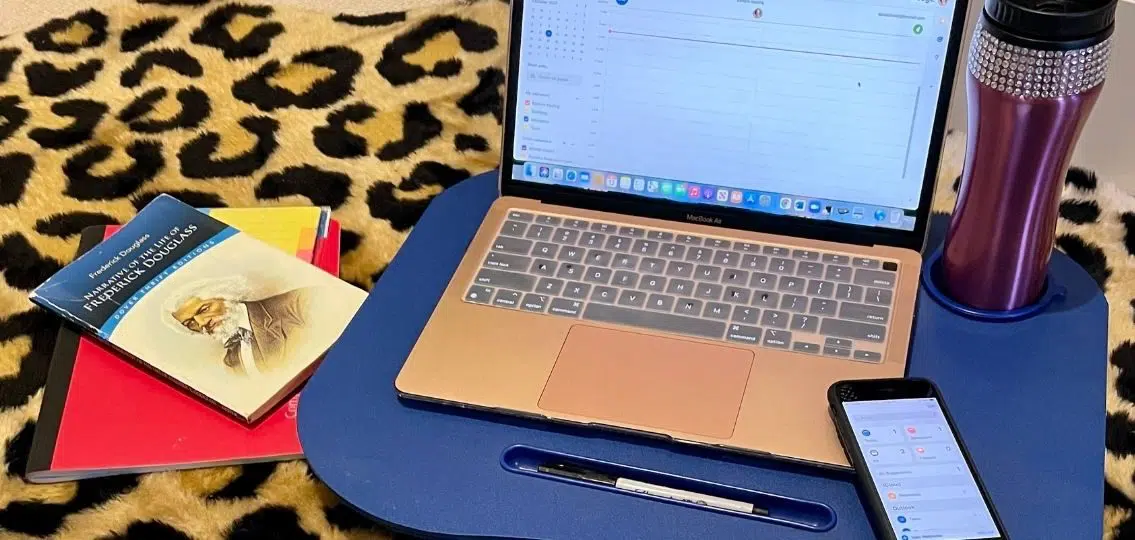Do you have teen chaos in your home? Does back to school time make you want to focus on promoting organization and time management skills for teens before another school year starts?

I’ve spent nearly two decades working with teenagers on improving their organization and time management skills. Through my work, I’ve come to realize that while most teens begin the school year with the best of intentions, many students simply lack the daily habits and structure to make those intentions a reality. As a result, they often quickly lose confidence in their ability to make positive change.
When it comes to organization and time management, tweens and teens don’t have biology or technology on their side. Some parents (and teachers) argue students should develop effective organization and time-management strategies on their own (teens need to develop responsibility, after all), and I agree—up to a point.
The teenager’s underdeveloped prefrontal cortex can make it difficult to prioritize long-term benefits (having a rough draft of an essay done ahead of time) with short-term pleasure (texting with friends or a romantic interest).
This, coupled with today’s “distraction landscape” makes the situation far more complex than ever before. Today’s teens find that the same computers and tablets they need to use to complete assignments often provide the biggest distractions from getting any work done. Most adults admit to struggling with managing technology use. So we can’t assume teenagers—who are dealing with hormones, distractions, and daily stresses—should somehow be better at self-regulation.
The good news is that the beginning of the school year provides a natural opportunity for a fresh start, and is the perfect time for parents and teens to collaborate and implement strategies that encourage healthy socialization, self-regulation, and sleep.
5 Strategies for Building Healthy Habits:
1. Begin with the end in mind.
There is a simple secret to how I get teenagers excited about become more organized and better manage their time. I encourage them to identify personal goals. I ask them to dream about how they would spend all the extra hours they will gain by being more organized. And they become naturally more motivated.
2. Be the change you want to see.
Try to set a structured devices-off family time on a daily or weekly basis. Having a regular opportunity for digital detox for everyone in the family allows the time “on” to be far more productive and focused.
3. Compartmentalize work time.
Research shows that students who actively strategize about how they are going to study actually improve their performance on tests. I encourage students to use a written planner. They should write out everything they need to do—for school, sports, extracurricular activities, or family obligations—all in one place. In addition, using the Pomodoro method—that’s working for 25 minutes followed by a five-minute rest break (to get up, walk around, use the bathroom) can make work seem less daunting. Also, having teens do their work outside of their bedrooms provides a natural boundary between work and rest.
4. Structure self-regulation.
Some teens care a great deal about socialization, and the fear of missing out (FOMO) can make it difficult to self-regulate or prioritize sleep. Screen management apps like Moment and Forrest can promote self-awareness and mono-tasking. Create natural boundaries. Not texting after a certain time at night, for instance, and requiring phones to be on chargers outside the bedroom. This promotes self-regulation. And, having teens think about what strategies make them more productive when working—turning off their phone and putting it in the other room, disabling messaging on their tablet, or creating dual screens for work and social on their computer—allows them the chance to navigate and identify potential solutions.
5. Create a weekly re-group time.
Even with the best of intentions, we all have those weeks where it feels like the wheels have fallen off by the time we get to Friday. It happens. The important thing is to create a built-in half hour every week—either on Friday or Sunday afternoon, or Monday evening—to go through backpacks, smooth out crumpled papers, organize desktops and plan out weeks. Ask teens what strategies worked well last week, and what they would like to improve in the coming week. To make it even more productive, set a timer and do it as a family at the kitchen table. This will make everyone feel as though they have a fresh start, and create the opportunity for lasting change.

Time management skills for teens take time and parental support to build. But encouraging these five habits can promote lasting success.




